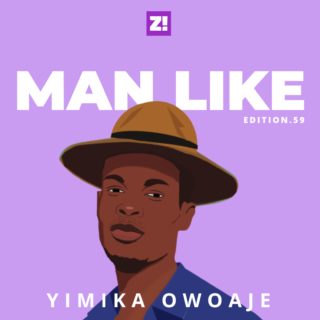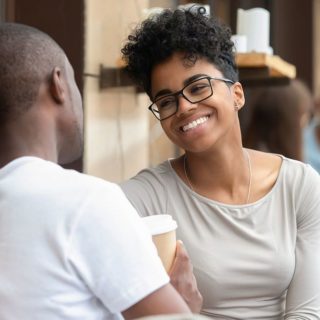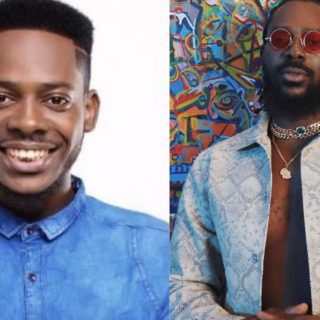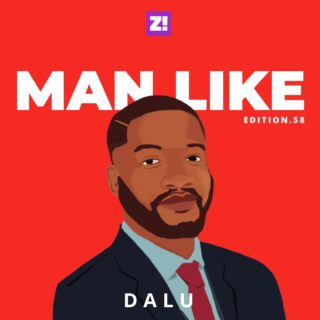What does it mean to be a man? Surely, it’s not one thing. It’s a series of little moments that add up. Man Like is a weekly Zikoko series documenting these moments to see how it adds up. It’s a series for men by men, talking about men’s issues. We try to understand what it means to “be a man” from the perspective of the subject of the week.
Today’s Man Like in Ycee, a musician. He talks about discovering music as a young boy in Festac, getting put on by Patoranking and his fallout with Tinny Entertainment.
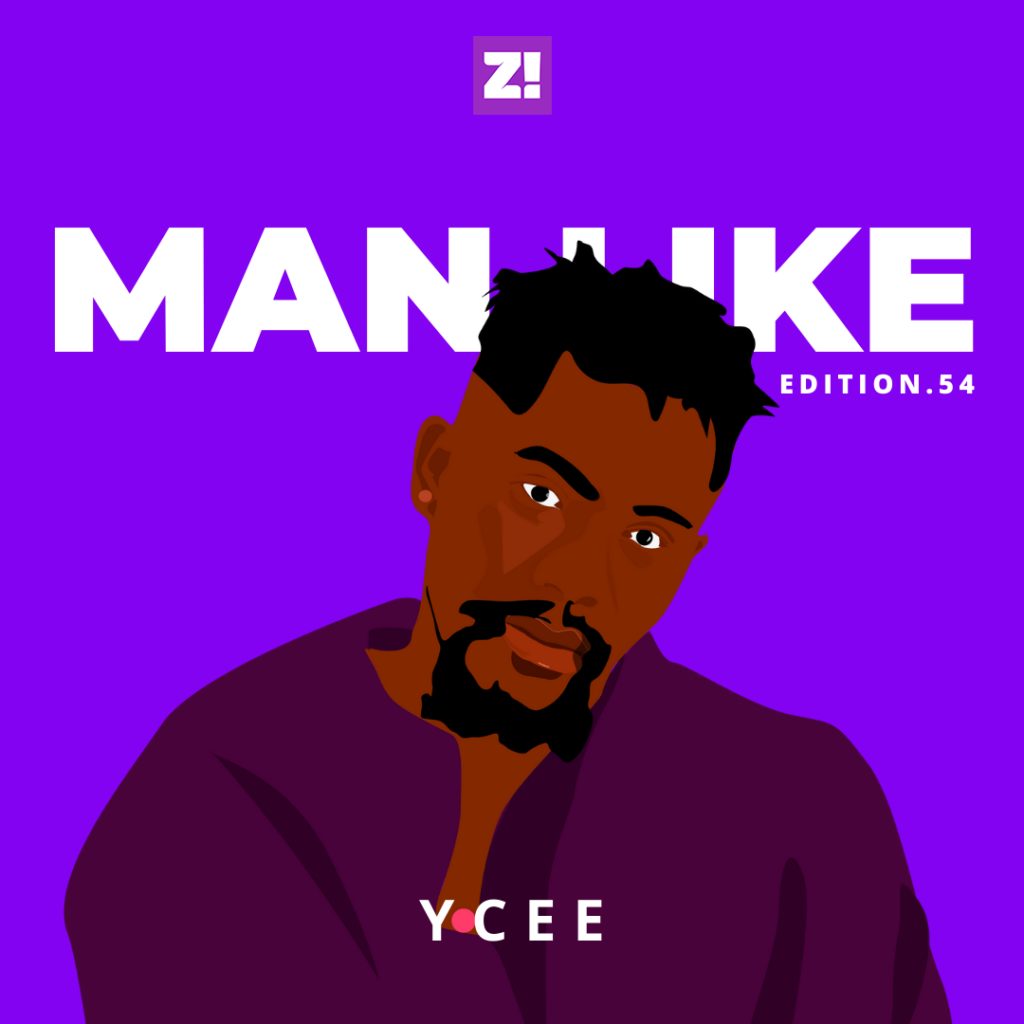
What was growing up like?
I was a very mischievous kid; I used to get into trouble all the time. I grew up with my extended family in Festac. Everyone knew everyone, and we had very few secrets. My grandfather was my father figure in a lot of ways; my father had left the picture since I was young.
What kind of impact did being raised by your grandfather have on you?
He was a retired soldier who wouldn’t take nonsense, but he was also very sweet to us his grandkids. There was a stiff atmosphere in the house which shaped my personality because I grew up with strict rules. Because my primary school was right opposite my school, I was on my best behaviour because if I messed up, my school would report me to my family just across the street. My mom would come and flog me in school, saying the teachers weren’t flogging me well enough.
What happened after Festac?
I proceeded to Nigerian Navy Secondary School, Ojo. Here, I got the freedom to explore the world for myself. Of course, this meant getting into trouble, especially with naval officers. I was caught, more than a couple of times, jumping over the fence to escape school.
Secondary school was also where I discovered my music. I used to write music and perform 50 Cents songs at talent shows. This made me very popular in school, especially among seniors. Also, I could never speak pidgin before I got into secondary school but mixing with kids who grew up in the barracks opened my life up to a different reality. Unfortunately, my academics suffered because I skipped classes a lot. I got a rude awakening when I repeated a class. I had come from being the top student in primary school to spending seven years in secondary.

What got you interested in music though?
When I got into SS 2, I found out there were students who were already recording music in the studio. When I heard their songs, I knew that I could do better. So I started recording music on my brother’s laptop.
I didn’t really pursue it because, in my family, nobody was interested in hearing you say you wanted to become a musician.
When did the pursuit begin?
I started sharing my music in my neighbourhood around 2010. I had failed JAMB the previous year after being accused of using a mobile device for malpractice. So I was gingered to push my music even more. I sent my music to people’s phones via Bluetooth and spent all my time at cybercafes sending my music to music blogs and whoever cared to listen.
At some point, I made a mixtape, The Remix Killer Mixtape, containing a compilation of different popular songs from DJ Khaled, Birdman, Tyga, Kanye, Saucekid. It did very well in Festac and a lot of people were blown away by it.
One of my friends had an older brother who was trying to get into the music business. He heard the mixtape and was impressed by it. I was invited to a studio session where I met Tinny Entertainment and got my first deal in 2012.
Tinny fell out with another artist signed to the label called Henry Knight. They were supposed to shoot a music video for one of his songs but they ended their relationship and chose to produce my song for a video, Smile on Me. I wasn’t ready yet but it was a good opportunity, so I grabbed it. I thought I had arrived; having a music video that was shot by the famed videographer Aje, but I soon realised that it took more than a music video to grow as an artist.
What happened next?
I wrote JAMB, finally passed and got into the University of Lagos. Meanwhile, I was putting out a lot of music but they were flops. And this was affecting my mind and schoolwork.
I always seemed to be at the cusp of a breakthrough, almost but never quite getting there. I felt like a waste of money to my record label. Because of my music career, I wasn’t doing great in school. It was like I was losing on both ends. By 2014, I told my label that I wanted to quit music and focus on uni since they were always investing in me but it never seemed to be paying off, but they convinced me not to quit.

I was getting even more disillusioned with school. I never felt like school aligned with my vision for my future self, so it was hard for me to apply myself in school.
In 2015, I got to meet Patoranking. This was when he just released Alubarika, so he was really buzzing. I would hang out at his studio and record. They were working on a particular song one day and someone said they thought Ycee would be dope on the song. I was so tired of music that when they called me to listen to the beat and drop a verse, I didn’t go until four hours later in the evening because I was chilling with my babe in school.
I eventually got there and people were so excited to get me on the beat. I didn’t even write lyrics for it; I freestyled. When the song was complete, everyone went crazy. That was like my reawakening. The song was Condo featuring Patoranking, and it was really popular.
Sometime later there was a big show in Unilag where Patoranking was performing. He brought me on stage and gave me a shoutout, and that was how I became famous in school.
Then I released Jagaban
Ah, Jagaban.
Within the hour of the song dropping, my phone was blowing up with people telling me how fire the song was. They were playing it in the club and everyone would go crazy. That was when I realised this was the beginning of a new phase for me. People started asking for pictures, girls started having crushes on Ycee.
Something a lot of people don’t know is that we released Omo Alhaji in 2015, sometime before Jagaban. Because of how well Jagaban was doing, Omo Alhaji didn’t make waves until 2016.
The songs I was putting out were doing very well, and I started to shake off the doubt and imposter syndrome.
I released Juice with Maleek Berry in 2017, and we had no idea it was going to do so well. I had recorded different versions of the song before I featured Maleek Berry. Nothing could prepare me for the madness it did.
Behind the scenes though, there was a lot going with my record label.

Tell us.
It was simply a situation where they weren’t looking out for my best interests. I trusted them, but as the years went by, I discovered that they weren’t looking out for me, only for their pockets. They rejected deals that would have been huge for me just because they wouldn’t profit a lot from it. I lost a lot of deals because Tinny turned down so many on my behalf. I had to stop making excuses for him and see that I was in a terrible business relationship.
2018 was my breaking point. I was in my mid-20s, and it seemed like I had stagnated as an artist and didn’t have much to show for my time in music. People also started to see me less as a person and more as a source of entertainment. My life became gossip fodder. I decided to quit music altogether and leave the industry. I was tired of it.
What did you do next?
I went to the US to spend some time with my family who were now based there. I disappeared — I wasn’t picking calls or present on social media. And for the first in a long time, I felt at peace. I could start thinking about what I wanted next for Ycee and me as a person.
Someone invited me to New York, saying there were a lot more opportunities there. It was when I got there that I realised I would have been stupid to quit music. I started to see visions of what I could do with myself in the Nigerian music industry.
So in 2018, I came back to Lagos to work on getting out of an unfair contract with Tinny Entertainment, which even their own lawyers thought the contract was unfair to me. I also had to leave because he had breached many clauses. I set up my own music label The ANBT, and I started performing and making music.
I’ve come a long way since then and while it’s not been easy, nothing beats having control over your own creativity. I was stuck in London during the lockdown and that was a really tough period. I not only had to think about my music, but I also had to worry about sustaining myself in a foreign country with little to no income. But that period was a defining moment for me in deciding how to pursue my career because I had time to think about it.
When did your family start to warm up to the idea of you becoming an artist?
When they discovered that music was something I was very passionate about after my first music video came out in 2012. After she saw my first music video, she was in. My mom used to paint. Her parents didn’t allow her to pursue her dreams, so she made sure to allow me to explore that part of myself.
Anytime I release music, she’s one of the first to listen to it. She really wants me to make a gospel album but I don’t know; I’ve not had my Kanye West moment yet.

LOL. What inspires your music?
They’re mostly about my personal experiences. My latest project, Love Drunk, is about the experiences of a relationship I’ve just gotten out of. The studio is where I can pour myself when I’m going through emotional stuff, and that’s what I’ve done with Love Drunk. To the listener, it’s supposed to inspire a memory from past and current relationships. Everybody has either served or been served breakfast.
What’s something people assume you like but you don’t?
Definitely drug usage. Because of my voice texture when I make rap music, people assume I do drugs. I’d be on my own, and someone would randomly offer me codeine. People I don’t know from anywhere would come online and boldly say, “Ycee dey use codeine.” People think entertainers just drink, smoke, and sleep with women in their spare time. Nothing could be farther from the truth. I actually hate drugs.
What’s a relaxing weekend like for you?
I start my weekend off playing video games like Apex Legends. After a few hours, I switch to watching Premier League football. I like to spend my evenings on the beach, sipping a drink. When it gets late, I just listen to what nightlife is saying and follow it. I prefer going to small clubs where there are not too many people. That’s pretty much it.
Check back every Sunday by 12 pm for new stories in the Man Like series. If you’d like to be featured or you know anyone that would be perfect for this, kindly send an email.
Are you a man who would like to be interviewed for a Zikoko article? Fill this form and we’ll be in your inbox quicker than you can say “Man Dem.”

